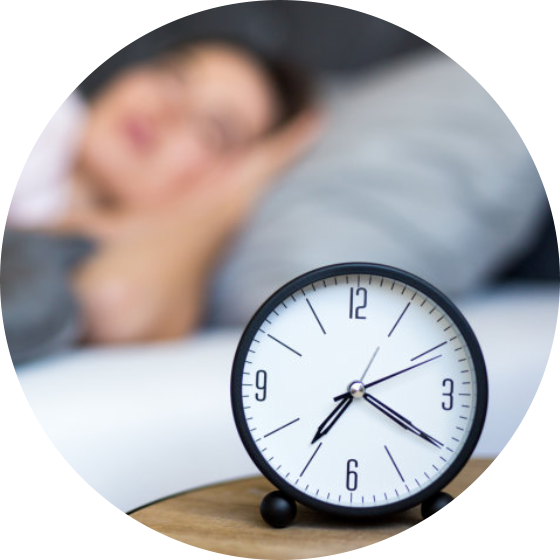Circadian Rhythms
Last updated: December 2020
Home > Information & Support > Adults > Sleep Hub >Sleep is largely controlled by sleep pressure, and the circadian rhythm, or our body clock, which is a 24 hour cycle that regulates all our biological and physiological processes. It anticipates environmental changes around us so that our bodies can adapt to them.
In ideal situations, the circadian rhythm will naturally rise in the early morning, promoting wakefulness and alertness, and will reach a peak in the evening. After a waking period of around 15 hours the pressure to sleep becomes greater and greater, in other words, we get tired. With the onset of darkness, the circadian rhythm drops to the lowest level and helps to maintain sleep.
Therefore it is important that we strengthen our body clocks to develop a regular sleep and wake up time.

Going to bed at the same time each night will help, as will waking at the same time each morning – even at the weekend! Exposure to light on a morning walk will help reset circadian rhythms as well as giving a much-needed energy boost. Also limit screen time in an evening as the light emitted can play havoc with your internal body clock by suppressing the levels of melatonin and making your brain think it’s still daytime – switch off at least an hour before bedtime.
Because our body clocks take their cue from environmental factor such as light/dark and temperature it can be confusing in winter we spend much of our time in darkness. We feel more alert when the sun is shining and more likely to hibernate when it’s dark.
Our body clocks can go off track, for example when changing the clocks from winter time to summer time, jet lag, shift work etc. This disrupts sleeping and eating patterns but also mood and mental alertness.
Paying attention to your body clock and the feelings of alertness and drowsiness, plus practising good sleep hygiene habits, will help develop better sleep.
